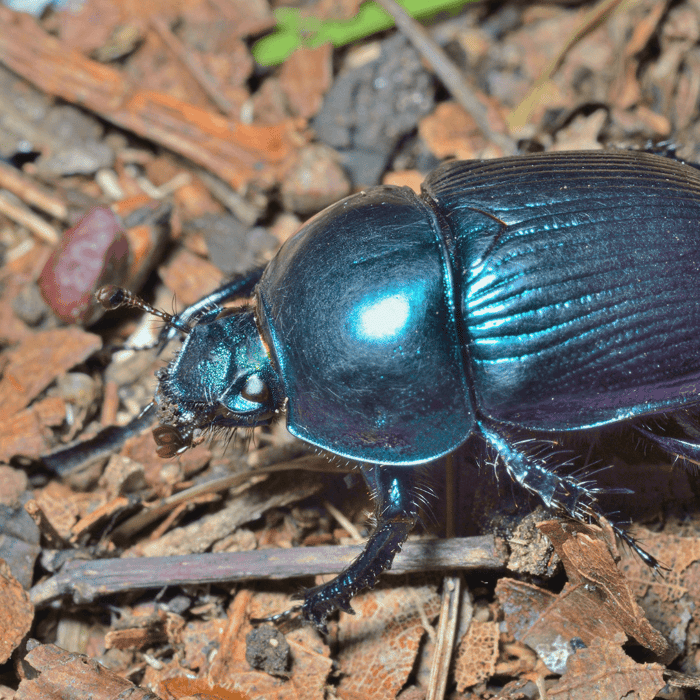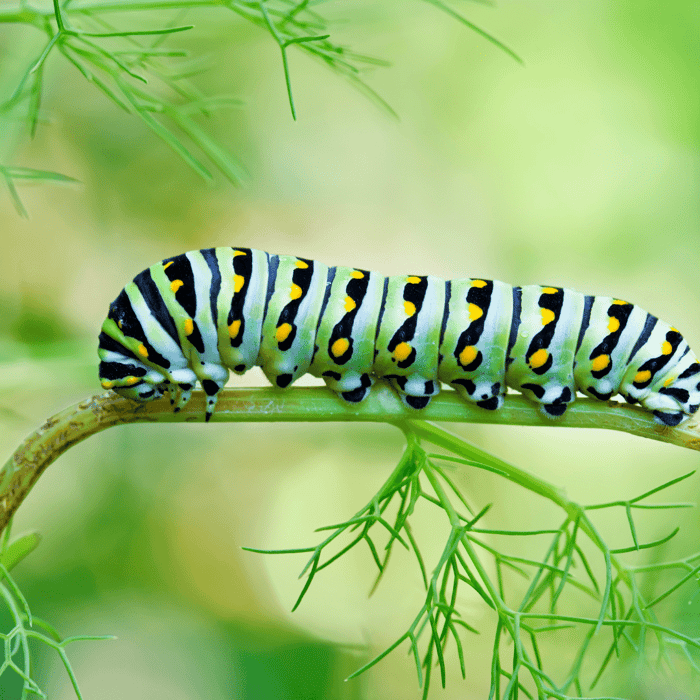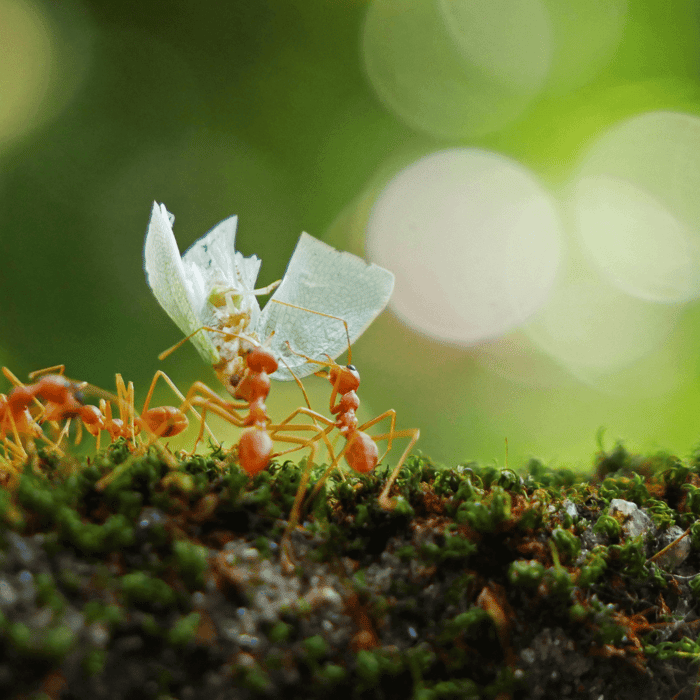As a gardener who loves to spend time tending to plants and nurturing her garden, I often encounter various insects, including beetles. Beetles are a diverse group of insects with more than 350,000 species known worldwide. While it's true that some beetles are destructive pests that can wreak havoc on a garden, many other beetle species are actually beneficial to gardens, helping to control other insect pests and breaking down decaying plant and animal material. In this article, we will discuss the pros and cons of having beetles in your garden and provide a step-by-step guide on how to manage them effectively and decide are beetles bad for gardens?
Recognizing Good Bugs vs. Bad Bugs
It's essential to distinguish between beneficial insects and harmful pests in your garden. Here are some examples of good bugs and bad bugs to help you identify them:
Good Bugs
- Lady Beetles: Also known as ladybugs, these beneficial insects feed on aphids, mites, and other tiny pests. They help keep pest populations in check.
- Ground Beetles: These insects prey on various pests, such as slugs, snails, and cutworms. They can be a great addition to your garden.
Bad Bugs
- Japanese Beetles: These invasive pests feed on the leaves of more than 300 different species of plants, causing significant damage to vegetable gardens.
- Squash Bugs: These pests can cause severe damage to squash plants by sucking the sap from leaves and stems, leading to wilting and eventual death.
Attracting Beneficial Insects
To maintain a healthy and thriving garden, it's essential to encourage the presence of beneficial insects. Here are some ways to attract good bugs to your garden:
- Plant various flowering plants to provide food and shelter for beneficial insects.
- Plant a diverse variety of heirloom seeds and plants that attract beneficial bugs.
- Avoid using broad-spectrum insecticides, which can harm both good and bad bugs.
- Create habitats such as insect hotels, or leave some decaying wood in the corner of your garden.
Wildflower, Perennial, & Annual Flower Seed Kit | 35 Variety Pack

$29.95
$49.95
35 Flower Seeds Variety Pack – Heirloom, Non-Hybrid, Non-GMO, Open-Pollinated – Perfect for Pollinator-Friendly Gardens Transform your garden with our 35 Flower Seeds Variety Pack, offering a stunning and diverse selection of heirloom, non-hybrid, and non-GMO seeds. Each variety in… read more
Managing Japanese Beetles
Japanese beetles are one of the most common and destructive pests in gardens. Follow these steps to control their population:
- Inspect your garden regularly for signs of Japanese beetles, such as skeletonized leaves or beetles.
- Handpick beetles from plants and drop them into a bucket of soapy water to kill them.
- Apply insecticides labeled for use against Japanese beetles, but be cautious not to harm beneficial insects.
- Use traps, but place them away from your garden to avoid attracting more beetles.
Preventing Squash Bugs
Squash bugs can be a significant problem for gardeners, especially in vegetable gardens. Use the following steps to prevent and control squash bugs:
- Check the underside of leaves for clusters of small, brown eggs and remove them.
- Monitor plants for adult squash bugs and handpick them off plants.
- Use row covers to protect young plants from infestations.
- Introduce beneficial insects like lady beetles to help control squash bug populations.
Keeping Cabbage Worms at Bay
Cabbage worms are another common pest in vegetable gardens. Follow these tips to protect your plants:
- Inspect plants regularly for signs of cabbage worms, such as holes in leaves or the presence of green caterpillars.
- Handpick cabbage worms from plants and dispose of them properly.
- Use floating row covers or netting to protect plants from cabbage worms.
- Introduce beneficial insects, like parasitic wasps, to help control cabbage worm populations.
Identifying and Managing Stink Bugs
Stink bugs can cause damage to fruits and vegetables in your garden. They pierce plant tissues to feed on sap, producing discolored and deformed produce. Follow these steps to manage stink bugs in your garden:
- Inspect plants regularly for stink bugs, both adults and nymphs. Look for damage to fruits and vegetables, such as dimpling or discoloration.
- Handpick stink bugs from plants and drop them into a bucket of soapy water to kill them.
- Use insecticidal soap or neem oil to treat infested plants. Be sure to apply the treatment to the underside of leaves where stink bugs tend to hide.
- Encourage beneficial insects, such as lady beetles and parasitic wasps, by planting various flowering plants.
Planting Resistant Varieties
One of the best ways to reduce insect pests in your garden is by planting resistant varieties of fruits and vegetables. Look for heirloom and vegetable seeds specifically labeled as immune to common problems. These plants will be less susceptible to damage and require fewer pest control interventions.
The Importance of Crop Rotation
Crop rotation is essential for maintaining a healthy garden and reducing the risk of insect pests. By rotating the location of specific crops in your garden each year, you can help prevent the buildup of problems that target those plants. For example, avoid planting tomatoes, peppers, or eggplants in the same spot where they were grown the previous year to reduce the likelihood of pests like stink bugs or squash bugs.
Utilizing Natural Predators and Biological Controls
Nature provides many solutions to pest problems in the form of natural predators and biological controls. Encourage the presence of these beneficial organisms in your garden by:
- Attracting birds and bats can help control insect pests such as beetles and caterpillars.
- Introducing beneficial insects like lady beetles, lacewings, and parasitic wasps to help manage aphids, mites, and other pests.
- Microbial-based insecticides, such as Bacillus thuringiensis (Bt), target specific insect pests like caterpillars without harming beneficial insects.
- Spiders can also help control insect populations that destroy fruits and vegetables.
In conclusion, while some beetles can harm your garden, many others are beneficial in maintaining a healthy ecosystem. By identifying and encouraging the presence of beneficial insects, practicing proper garden management techniques, and implementing natural pest control methods, you can create a thriving garden that coexists harmoniously with beetles and other insects.
Vegetable Seed Vault Kit | 35 Variety Pack

$29.95
$49.95
Ultimate Survival Seed Vault: 16,000+ Non-GMO Heirloom Vegetable Seeds for Emergency Preparedness Introducing the Seed Vault Kit, your all-in-one solution for emergency preparedness and sustainable gardening. This premium seed kit contains over 16,000 non-GMO, Heirloom, Non-Hybrid, and Open Pollinated seeds,… read more

 Frequently Asked Questions - Are Beetles Bad For Gardens
Frequently Asked Questions - Are Beetles Bad For Gardens
Q1: How can I tell if beetles harm or benefit my garden?
A: Observe their behavior and appearance to determine whether beetles are harmful or beneficial. Beneficial beetles, like lady and ground beetles, typically prey on other pests and help maintain a healthy garden ecosystem. Dangerous beetles, such as Japanese beetles and squash bugs, cause visible damage to plants by feeding on their leaves, stems, and fruits.
Q2: How do I control beetle populations without harming beneficial insects?
A: Use targeted and non-toxic pest control methods, such as handpicking pests, introducing beneficial insects, and applying insecticidal soap or neem oil. Avoid using broad-spectrum insecticides, which can harm both harmful and beneficial insects.
Q3: What plants can attract beneficial insects to my garden?
A: Planting a variety of flowering plants can help attract beneficial insects. Some examples include:
- Yarrow
- Goldenrod
- Fennel
- Dill
- Aster
- Sunflower
- Marigold
Q4: How can I prevent beetles and other pests from infesting my vegetable garden?
A: Practice good garden management techniques, such as:
- Planting resistant varieties of fruits and vegetables
- Practicing crop rotation
- Encouraging natural predators and biological controls
- Regularly inspect plants for signs of pests and take appropriate action
Q5: Can I use chemical insecticides to control beetles in my garden?
A: While chemical insecticides can effectively control beetle populations, they should be used cautiously, as they can also harm beneficial insects and disrupt the natural balance of your garden ecosystem. Opt for targeted and non-toxic pest control methods whenever possible.
Q6: What are some common signs of beetle infestations in my garden?
A: Common signs of beetle infestations include:
- Holes or skeletonized leaves caused by beetles feeding on plant tissue
- The visible presence of beetles on plants
- Damaged, discolored, or deformed fruits and vegetables
- Patches of dead or dying plants in your garden
Q7: How can I prevent future infestations of harmful beetles in my garden?
A: To prevent future infestations of harmful beetles:
- Inspect your garden regularly for signs of beetles and take appropriate action
- Maintain a clean and healthy garden by removing debris and weeds that can harbor pests
- Encourage the presence of beneficial insects and natural predators
- Plant a diverse range of plants to create a balanced ecosystem
Q8: Are there any organic solutions for controlling harmful beetles?
A: Yes, several organic solutions can help control harmful beetles, including:
- Neem oil: A natural insecticide derived from the neem tree, neem oil can be applied to plants to control various pests, including beetles.
- Diatomaceous earth: This natural powder can be sprinkled around the base of plants to deter beetles and other crawling insects.
- Beneficial nematodes: These microscopic worms can help control beetle larvae in the soil.
- Bacillus thuringiensis (Bt): This naturally occurring bacterium can control specific beetle larvae, such as the Colorado potato beetle.
Remember to use organic solutions responsibly and follow the product instructions carefully to avoid harming beneficial insects and other non-target organisms.
By incorporating these tips and strategies into your gardening practices, you can effectively manage beetle populations and create a harmonious and thriving garden ecosystem. Remember that a balanced garden is beautiful and more resistant to pests and diseases. So, embrace the presence of beneficial beetles and work towards achieving a healthy, sustainable garden.







